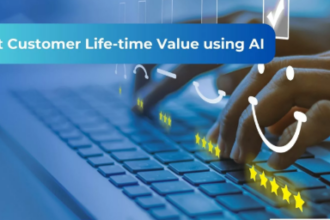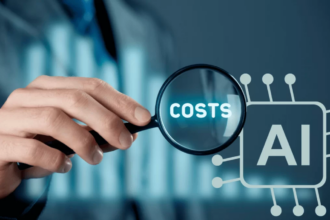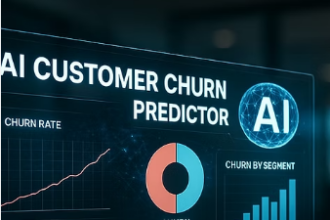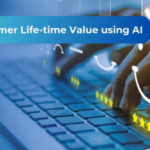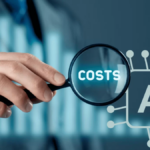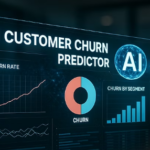In this article, we will look at various reasons why AI is very dangerous to mankind. The range of potential harms from artificial intelligence is enormous — from ethics concerned with accountability and bias, through economics where it takes away jobs due to automation;
security risks such as those caused by weak points in systems that can be exploited or even the fear about international stability because autonomous weapons may start getting used. Also there are existential risks if machines become smarter than humans and start having their own values which don’t align with ours.
Not only this but also social aspects should not be ignored since they affect human relationships as well as personal happiness because people’s lives change with time – so does the way AI interacts with them.
What we want to show by investigating these areas is how important it becomes for us all to recognize dangers posed by Artificial Intelligence devices while still encouraging their responsible development and utilization practices worldwide wide .
What is AI?
Artificial Intelligence (also known as AI) is the imitation of human intelligence in machines that are programmed to think like humans and mimic their actions. These machines include computers designed with specific abilities such as learning, reasoning, problem solving, perception and decision-making.
There are various types of AI technology which can be categorized into machine learning where algorithms allow systems to learn from data by identifying patterns for predictions or decisions without being explicitly programmed; neural networks – inspired by how the brain works – enables recognition complex patterns or relationship between inputs;
Natural language processing which helps computers understand and generate human languages while computer vision allows them interpret visual information through analysis among others. The applications range across fields like healthcare, finance, transport etc., completely altering industries and our lifestyles altogether!
Importance of understanding the potential risks associated with AI
It is of utmost importance to know the possible dangers brought by artificial intelligence if one is to navigate through the dense thicket of advancing technology. In the first place, this allows us to predict and prevent ethical predicaments that may arise in AI systems like prejudice or unaccountability which can bring about widespread social consequences.
Secondly, understanding these risks is necessary for dealing with economic disturbances caused by AI such as unemployment due to automation and increased income disparity as well as coming up with ways of lessening their impacts.
Thirdly, we can strive towards protecting against likely threats to international security and peace by acknowledging security risks entailed in artificial intelligence for example system vulnerabilities or development of self-governing weaponry systems.
What’s more, appreciating existential hazards linked with artificial intelligence makes us look into methods of ensuring that machines align themselves according human values besides not endangering humanity’s long term survival.
In general terms, getting a clear comprehension about these risks helps one make informed decisions, facilitate responsible creativity and formulate policies plus laws that will guide on reaping maximum benefits from AI while minimizing its downsides.
Is AI Dangerous? 4 risks associated with AI
Despite being in its early stages, companies that employ artificial intelligence tools have already identified some risks. These concerns may include privacy problems, cybersecurity threats, data bias and third-party relationships. Leaders can mitigate them by exploring these risks.
Security
The security risks of rapidly changing AI are numerous. For example, a company might outsource data collection or model selection during the development of an AI system; however, this means working with another vendor who brings their own set of potential security issues along with them.
If safety measures are not implemented once a system becomes operationalized, hackers could take advantage of vulnerabilities or even launch cyber attacks against inadequately protected platforms.
Lack of governance
An AI system is only as good as the information it is trained on. If the data supporting an AI system is poor quality or insufficiently representative, the results will reflect this too. Even with good data there are two main challenges: providing enough diverse examples and situational awareness for training an AI-powered platform to give correct outputs for each possible scenario is prohibitively hard if not impossible thus making it fail to achieve what it was intended to do hence necessitating control over such systems during their development and implementation phases as well as afterwards.
Lack of transparency
AI can be difficult to explain which is why many people feel that there should be more transparency around it. If a business owner cannot understand how an AI automation tool arrives at its recommendations, they may begin to doubt and question everything about such systems including their usefulness or even trustworthiness in general terms.
Bias
AI has the ability to unintentionally perpetuate certain biases through training data or systemic algorithms used in its design process. Data ethics are still being refined but one risk factor involves biased outcomes being produced by AI systems which could expose companies to legal action from those affected by such decisions while also posing compliance challenges for organizations implementing them plus privacy implications arising thereof.
Do the benefits outweigh the risks?
Determining whether the risks or benefits of artificial intelligence (AI) are more important is a sophisticated, multifaceted task. AI is good for many things — it can make industries better, faster and more efficient; it dramatically improves decision-making by tackling complex challenges that cut across different sectors like healthcare, transportation systems or sustainable development. But these upsides must be weighed against downsides too.
Ethically speaking, among other issues fairness concerns may arise where some argue that while protecting individual rights privacy could also be violated through bias perpetuation by lack of transparency and accountability from authorities who develop them without any input beyond their own circles; economically speaking so far there has been no solid plan on what happens when jobs get taken up by machines because those left will create even
More wealth thereby widening gaps between haves nots in society which might lead into anarchy if nothing is done soonest possible time frame especially considering current levels of poverty worldwide where majority live below poverty line security wise such as vulnerability points within cyber space utilized during warfare times thus enabling criminals gain access into various systems
Besides creation autonomous weapons capable destroying lives within seconds after activation which poses risk towards both personal freedoms international peace keeping efforts existential nature whereby robots take over all tasks currently performed humans thereby becoming smarter than us then decide exterminate human race order protect itself survival etcetera.
In order to maximize the benefits while minimizing the risks associated with AI we need proactive steps like establishing ethical guidelines, creating regulatory frameworks around its development and use as well promoting responsible innovation practices throughout our societies
Impact of AI on human relationships and social dynamics
The many ways that artificial intelligence (AI) affects human relationships and social dynamics are complex and changing. AI can improve communication and help us connect with one another even more; it does this by enabling virtual interactions and creating global communities. Social media platforms utilize algorithms powered by AI to personalize recommendations, which form individual’s online experiences as well as their relationships with others.
Nevertheless, there are also worries about the authenticity and quality of such relationships brought about by AI. The fact that chatbots can have conversations like those between two humans shows just how close machines have come to being seen as people too. Moreover, these algorithms may make things worse by trapping us in our own little worlds full of people who think exactly like we do — filter bubbles or echo chambers.
Even more concerning is what could happen when private life starts getting tangled up with all these virtual assistants and social robots running on AI systems: things might get weird but good questions are raised; trust? autonomy? privacy? Who knows how society will change because of this technology?
There is so much we need know still – ongoing studies, ethics boards going over everything again from scratch… it’s complicated! Our goal should be ensuring that tech supports rather than detracts from emotional connections between people living happy lives together.
Security Risks
AI security dangers consist of system vulnerabilities and self-governing weapon systems. The use of artificial intelligence weakness may result in such harmful acts as breaching data, or hacking into another person’s computer among others which not only affect individuals but teams too not forgetting even countries’ safety.
Moreover developing self-directed arms provokes fears about the prospective utilization of this technology in war thus causing more tensions between nations leading up Unstable Peaceful periods through wars either escalating slowly over time or suddenly coming out without any warning signs whatsoever.
Robust cyber defense strategies must be put in place alongside ethical policies that guide its usage internationally since failure to do so can lead us into troubles where things are done carelessly while at same time we preventing ourselves from potential enemies who may take advantage on these things during their creation hence endangering lives through different methods including unleashing autonomous weapons worldwide.
Legal and Regulatory Challenges
Complex systems of regulation and law must be navigated as one works with artificial intelligence. These frameworks change over time as people figure out how best to use, distribute, and answer for what happens with AI. Businesses often have trouble with this because they have to find ways of following laws that protect personal information without giving up on progress or keeping things secret from others.
They may also become liable if their machines make decisions which they cannot explain; this means there is no person you can hold responsible when something goes wrong because different countries see things in different ways.
To meet this challenge policymakers need to talk more often about it among themselves while different organizations share ideas so as not only create policies but also adapt them depending on where new technologies arise.
Conclusion
To close, AI has many risks and we should think about them well as they advance. There are many dangers of AI; from ethical problems associated with biases and non-accountability to economic disturbances due to automation, these risks are significant. Security threats also exist like vulnerabilities within the systems themselves or even autonomous weapon systems which might compromise individual privacy rights as well global stability.
As artificial intelligence approaches human level intelligence it poses an existential risk since its goals may not align with those necessary for long term survival of humans on earth. Additionally, what this technology does to people’s relationships and social dynamics underscores why we need responsible development and use of such things.
Despite the fact that there are numerous benefits offered by AI; therefore, one must take proactive measures in order to address these dangers which include having strong ethic al guidelines regulating framework s around them internationally used for this sake too so that mankind can be saved from any possible harm while at the same time ensuring that its potential good is prioritized over everything else

